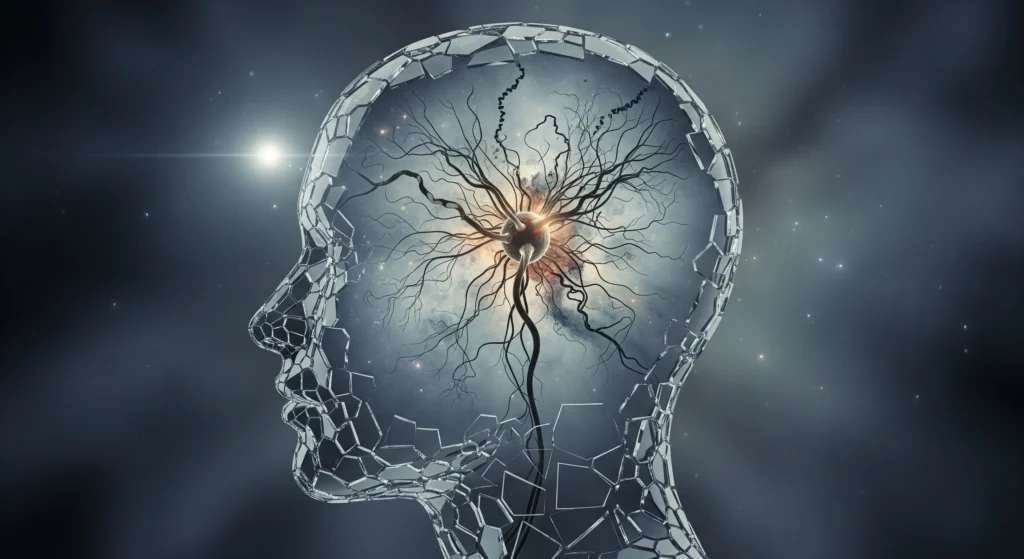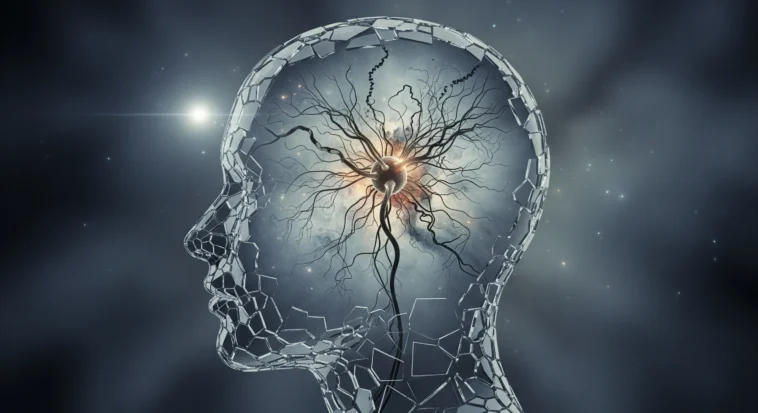
Cognitive impairment affects millions around the world—it’s basically when your brain has a harder time with memory, thinking, and making decisions.
As people live longer and more of us start paying attention, it’s super important to know what’s going on. Think of it like your brain’s “software” slowing down or glitching sometimes.
This guide dives into everything from mild forgetfulness to serious dementia, helping you spot the signs and understand what can be done.
What Is Cognitive Impairment?
Cognitive impairment is when your brain starts having a harder time with everyday thinking—like remembering stuff, planning, or paying attention.
It can be tiny and almost unnoticeable, or big enough that someone needs help all the time.
Think of it as your brain’s GPS or playlist acting glitchy: sometimes it’s just a small skip, other times it crashes and needs backup.
The key cognitive domains affected include:
- Memory: Trouble remembering things short-term (like what you studied yesterday) or long-term (like names or events).
- Executive Function: Skills for planning, organizing, and solving problems—basically the stuff that helps you finish a project on time.
- Attention and Concentration: How well you can stay focused and handle incoming information without getting lost.
- Language: The ability to find words, understand others, and communicate clearly.
- Visuospatial Skills: Knowing where things are, reading maps, or judging distances—like not bumping into a chair in the dark.
- Processing Speed: How fast your brain takes in information and gives an answer—kind of like loading speed on a phone.
Understanding these parts helps you figure out what’s going on and what kind of help someone might need.
Mild Cognitive Impairment (MCI)
Mild Cognitive Impairment, or MCI, is like the “in-between” stage—more than the normal forgetfulness that comes with age but not as serious as full-blown dementia.
People notice their thinking is slipping a bit, but they can still handle daily life.
Think of it as your brain hitting a few glitches, like when your phone slows down but still works.
Types of Mild Cognitive Impairment
Amnestic MCI
- Mainly messes with memory
- Forgetting recent chats, events, or where you put things
- Struggling to remember names and faces
- Sometimes leads to Alzheimer’s disease
Non-Amnestic MCI
- Affects skills other than memory, like language, planning, or judging space/time
- Harder to make decisions or organize tasks
- Can lead to other types of dementia
Prevalence and Risk Factors
Research shows women may live around 4 years with MCI before dementia, men slightly less.
Things that raise risk include:
- Age: Big jump after 65
- Education: Learning more may protect your brain
- Genetics: Family history matters
- Heart & Health: Diabetes or heart issues increase risk
- Lifestyle: Being inactive, eating poorly, or staying isolated
Major Types of Dementia
When thinking problems get bad enough to interfere with daily life, we call it dementia.
Knowing the kinds helps families get the right care.
Alzheimer’s Disease
Alzheimer’s is the most common—about 60–80% of cases.
It’s linked to sticky protein buildups (amyloid plaques and tau tangles) that gum up brain circuits.
Key points:
- Starts with memory loss (recent events first).
- Confusion about time/place and trouble finishing familiar tasks.
- Mood and language change over time.
Progression: early (mild forgetfulness), middle (more confusion, help needed), late (severe decline, full-time care).
Vascular Dementia
Caused by reduced blood flow—strokes or tiny vessel problems—so parts of the brain don’t get oxygen.
It’s the second most common type.
Key points:
- Problems often show up as slower thinking and trouble solving problems rather than pure memory loss.
Subtypes: multiple small strokes (multi-infarct), small-vessel disease, or mixed with Alzheimer’s.
Lewy Body Dementia
Abnormal clumps called Lewy bodies affect brain chemistry. This type has its own weird signs.
Hallmark signs:
- Vivid visual hallucinations.
- Fluctuating attention/alertness.
- Movement problems like Parkinson’s and REM sleep behavior disorder.
- People can be very sensitive to some antipsychotic meds.
Two forms:
- DLB (cognitive symptoms first)
- Parkinson’s disease dementia (movement first).
Frontotemporal Dementia (FTD)
FTD hits the frontal/temporal lobes earlier (often ages 45–65) and changes behavior and language.
Variants & symptoms:
- Behavioral variant: big personality shifts, poor social judgment, loss of empathy.
- Primary progressive aphasia: progressive language loss.
- Can include movement problems.
Other Types of Cognitive Impairment
Cognitive problems don’t just come from aging or dementia—sometimes it’s other stuff messing with your brain.
Drug-Induced Cognitive Impairment
Some medications can make your brain feel foggy or slow:
- Anticholinergic meds
- Benzodiazepines
- Certain antidepressants
- Some painkillers
- Even combinations of multiple meds
Metabolic and Nutritional Causes
Your body and brain are best friends—if one struggles, the other does too. Issues like:
- Vitamin B12 deficiency
- Thyroid problems
- Liver or kidney disease
- Diabetes complications
- Electrolyte imbalances
Reversible Cognitive Impairment
The good news? Some brain slowdowns can be fixed if you catch them early:
- Depression-related brain fog
- Sleep disorders
- Delirium
- Medication side effects
- Untreated medical conditions
Risk Factors and Prevention Strategies
Modifiable Risk Factors
Research suggests that tackling certain lifestyle things can help prevent or slow down cognitive decline.
Think of it as giving your brain better fuel and a cleaner road to drive on.
Cardiovascular Health
- Regular exercise and physical activity
- Managing blood pressure and cholesterol
- Controlling diabetes
- Maintaining healthy weight
Cognitive Engagement
- Lifelong learning and mental stimulation
- Social engagement and relationships
- Creative and challenging activities
- Reading and intellectual pursuits
Lifestyle Factors
- Healthy Mediterranean-style diet
- Adequate sleep (7–9 hours nightly)
- Stress management techniques
- Avoiding excessive alcohol consumption
- Not smoking
Non-Modifiable Risk Factors
Some things you can’t change, but knowing them helps you act smarter:
- Age (primary risk factor)
- Genetics and family history
- Gender (women at higher risk for Alzheimer’s)
- Race and ethnicity
- Head injuries or trauma
Diagnosis and Assessment
Initial Evaluation
Getting the right diagnosis means digging deep and checking everything carefully.
Medical History and Physical Exam
- Track symptoms over time
- Review all medications
- Look at daily life functioning
- Do a physical and neurological check
Cognitive Testing
- Mini-Mental State Examination (MMSE)
- Montreal Cognitive Assessment (MoCA)
- Neuropsychological testing batteries
- Focus on specific brain skills like memory, attention, and language
Laboratory Tests
- Blood work to rule out fixable problems
- Check vitamin B12 levels
- Test thyroid function
- Look at inflammation markers
Imaging Studies
- Brain MRI or CT scans
- PET scans to spot protein buildups
- SPECT imaging to see blood flow
Importance of Early Detection
Spotting problems early is huge. Studies show that in advantaged groups, cognitive decline happens later and faster near the very end of life.
Early detection means:
- Access to treatments that may slow things down
- Time to plan for the future and legal matters
- Opportunity to fix reversible causes
- Better symptom management
- Overall higher quality of life
Treatment and Management Approaches
Pharmacological Interventions
For Alzheimer’s Disease:
- Cholinesterase inhibitors (donepezil, rivastigmine, galantamine)
- NMDA receptor antagonist (memantine)
- Newer treatments like aducanumab (approved but still debated)
For Other Dementias:
- Medications to handle specific symptoms
- Treat underlying conditions like blood vessel or heart problems
- Manage behavioral changes
Non-Pharmacological Strategies
Cognitive and Behavioral Interventions:
- Cognitive stimulation therapy
- Reality orientation techniques
- Validation therapy
- Reminiscence therapy
- Structured daily routines
Environmental Modifications:
- Make the home safer
- Clear labels and organized spaces
- Good lighting and less noise
- Familiar objects and photos
- Tech aids for memory support
Support for Families and Caregivers
Caring for someone with cognitive issues affects the whole crew:
Educational Resources:
- Learn about the type of impairment
- Understand progression and what to expect
- Develop communication hacks
- Access community resources and support groups.
Respite and Support Services:
- Adult day programs
- In-home care help
- Caregiver support groups
- Counseling and mental health services
Living with Cognitive Impairment
Maintaining Quality of Life
Even with cognitive challenges, there are tons of ways to keep life meaningful and fun.
Staying Active and Engaged:
- Regular exercise that fits your abilities
- Social activities and spending time with friends or family
- Hobbies and interests that bring joy
- Volunteer work or anything that feels purposeful
Safety and Independence:
- Check the home for safety and make adjustments
- Use assistive devices or tech for memory and mobility
- Find transportation options if driving becomes tricky
- Plan finances and legal matters ahead of time
Communication Strategies
Talking and connecting well becomes super important:
- Speak slowly and clearly
- Use simple, concrete words
- Keep eye contact and use gestures
- Be patient and give extra time for responses
- Focus on feelings, not just facts, when needed
Conclusion
Understanding cognitive impairment gives you the power to help yourself, your family, and your community handle these challenges better.
Everyone experiences dementia differently—it depends on health, brain history, and the type of impairment.
Early recognition, proper diagnosis, and the right care can make a huge difference.
Staying informed, asking for professional help, and using support systems are like having a toolkit for navigating tough brain changes.



